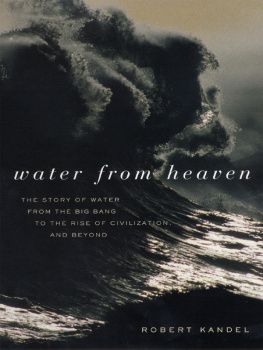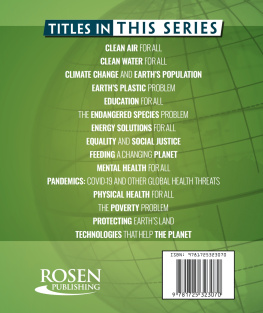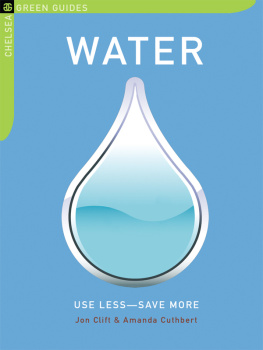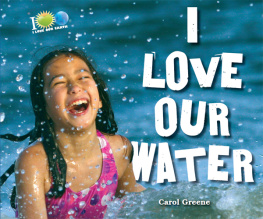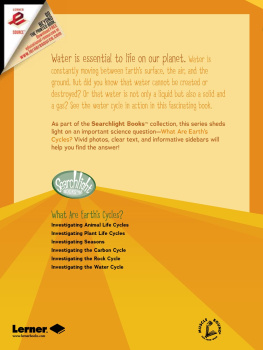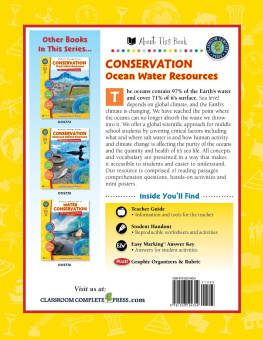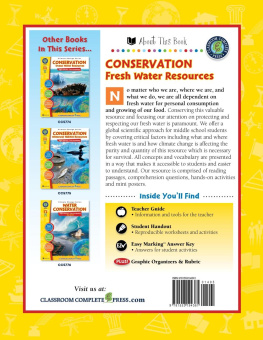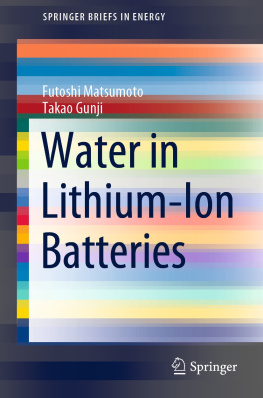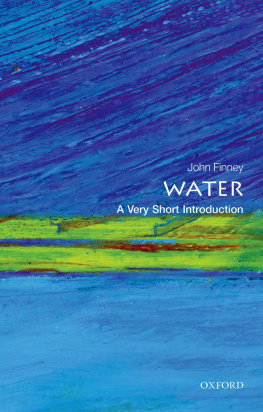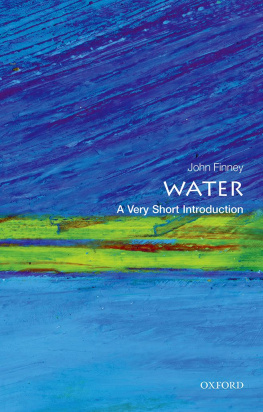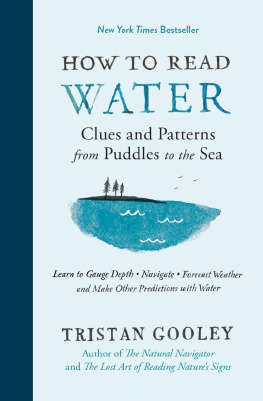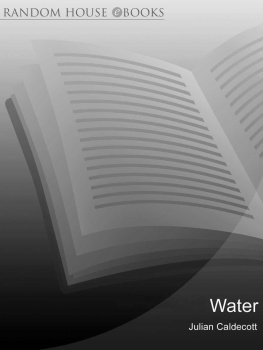water from heaven
Water from Heaven
THE STORY OF WATER FROM THE BIG BANG TO THE RISE OF CIVILIZATION, AND BEYOND
Robert Kandel
COLUMBIA UNIVERSITY PRESS NEW YORK

Columbia University Press
Publishers Since 1893
New York Chichester, West Sussex
cup.columbia.edu
Originally published in France as Les eaux du ciel
Copyright 1998 Hachette Littratures;
English-language translation copyright 2003 Columbia University Press
All rights reserved
E-ISBN 978-0-231-50775-2
Library of Congress Cataloging-in-Publication Data
Kandel, Robert S.
[Les eaux du ciel. English]
Water from heaven : the story of water from the big bang to the rise of civilization, and beyond / Robert Kandel.
p. cm.
Includes bibliographical references and index.
ISBN 0231122446 (cloth : alk. paper)
1. Water. I. Title.
GB661.2 .K3513 2003
551.46dc21
2002031229
A Columbia University Press E-book.
CUP would be pleased to hear about your reading experience with this e-book at .
References to Internet Web sites (URLs) were accurate at the time of writing. Neither the author nor Columbia University Press is responsible for URLs that may have expired or changed since the manuscript was prepared.
I dedicate this book to Danielle, Maya, Tania, and Arielle, in the order of their appearance in my life
Why another book about water? For one thing, water has always been and continues to be one of the major challenges of civilization. It could be the biggest problem of the 21st century. In todays world, farmers, lawyers, decision-makers, scientists, engineers, indeed all citizens must share in this both old and new responsibility. Too often, even when raising the question in terms of global management, those responsible for this vital resource only consider water once arrived on the land, as if it were an unvarying gift of God in heaven. Everyone knows full well that weather changes, but meteorologists know that climate too can change. Since at least the early 1970s, research on the global warming induced by human activities has shown that water resources, which fall from the sky, may well be distributed differently before the end of this 21st century. One of the reasons for this book is to remind readers that the water that we drink, the water needed to grow rice, wheat, and other crops, as well as to maintain forests and prairies, necessarily passes by way of the atmosphere that we humans are in the process of changing.
Another reason, related to the years I spent working in astrophysics, is to recall the history of water, which links our cells and those of all living creatures to the history of the universe. Water follows many paths on Earth, a unique planet as far as we know, covered with oceans and ice as well as deserts and green land, sheltering life on most of its surfaces. We certainly need to learn to manage our environment more intelligently, but we humans need also to dream and to satisfy our curiosity, our thirst for knowledge. Many years ago, on mission to the Haute-Provence Observatory in southern France to observe cool dwarf stars, I would curse the clouds. But who cannot be fascinated by the fantastic structures that sometimes take shape in the sky? Can you imagine the paintings of Ruisdael without the changing cloudscapes of Holland? In June 1979 I became a virtual astronaut, observing Earth from Meteosat by working at a computer screen at the European Space Operations Center in Darmstadt, Germany. There I could admire the larger-scale structures of cloud systems extending over thousands of kilometers, while studying their variations with local time and their changes from day to day.
We cannot follow the full story of water, however, if we stay up in the clouds. In this book, Ive had to trespass on geographers territories, to fish in oceanographers waters, glean in agronomists fields, draw knowledge from the wells of the hydrologists. If I were to confine my discussions simply to my own area of specialization, it would interest precious few readers outside that area, and it would hardly help in understanding the broader issues. Of course, the problems of managing a water purification plant require the attention of specialized engineers, but one must also keep in mind where the water to be purified comes from, and where waste water will ultimately be discharged. Scientific research requires specialization and discipline, but excessively specialized scientific disciplines begin to resemble disciplinary cells if not solitary confinement, and Ive no taste for that. Having traveled the planet Earth and some of its seas for over half a century, I claim the right to be interested in everything. That doesnt mean that I have the illusion of having an answer to every question. In Goethes Faust, the old family servant Wagner says: Ive set myself to study fervently; I know its very much, but I want to know it all. Faust tends to make fun of him, but one could do worse.
The accidents of family history, life, and love have led me to make most of my scientific career in or near Paris, although I was born and grew up in New York City and studied and taught in the Boston area. I originally wrote this book in French, but seized the chance to translate it myself and adapt it for English-language readers, including examples of the wondrous ways of water from both Paris and New York and from other places on this planet that I know and love. I also have added some notes on the important contributions of French and other scientists to the widespread fields that I visit. I have taken into account some new scientific and political developments, although of course it is hopeless to try to make a printed book fully up-to-date. I hope, however, that I have succeeded in the challenging task of transforming the French-language structure into living English and not the constipated conference English that has become an international lingua franca.
One more point: some may find that my criticism of environmentalists or ecologists goes too far. Nonetheless, I believe I have a perfect right and indeed the duty to attack the exaggerations and at times completely wrong assertions that are far too current among environmental movements, no matter how good their intentions. Defense of the environment is too important to be left to advertising copywriters and pulpit-thumpers. Worse, those who cry wolf, when the threat is from the weasel, end up by comforting complacency. And those who work for the special interests of the merchants of coal and oil have too easy a time highlighting the errors, exaggerations, and inconsistencies of many green propagandists.
All children love water; you too, I hope. Castles of cloud, invisible vapor, breaking waves and spray, the calm of the ocean depths, peaceful lakes, rushing brooks, and the crystalline majesty of glaciers, all water. Bon voyage!
My thanks go to Jean-Claude Pecker, who directed my doctoral dissertation in astrophysics and has continued to be a source of inspiration to me for more than forty years, even after I left that field. He also found for me the exact quote from Voltaire in chapter 5. Thanks also to the students at Virginia Polytechnic Institute and State University, who listened to me patiently in the spring of 1998. Thanks to Arielle, who carefully read part of my (French) manuscript, and to Jean Delaite, who hunted down unclear or misleading paragraphs in the French version. I also thank Holly Hodder, formerly of Columbia University Press, now at Westview Press in Boulder, Colorado, for encouraging me to take on the preparation of the English-language version. Finally, many thanks to Roy E. Thomas of Columbia University Press, for his thorough checking of the English-language manuscript, his stimulating questions and comments, and his help in clearing up the muddier passages.
Next page
